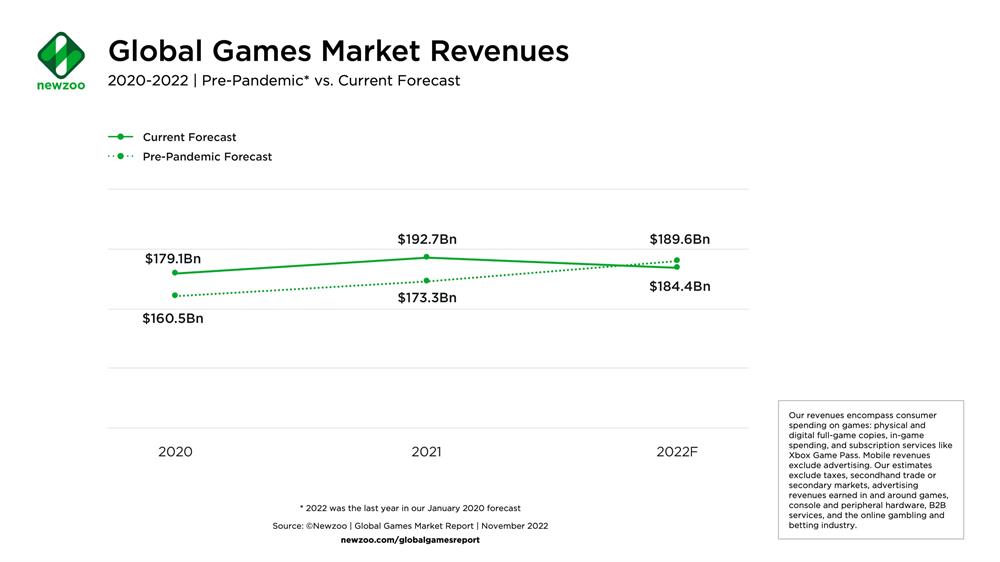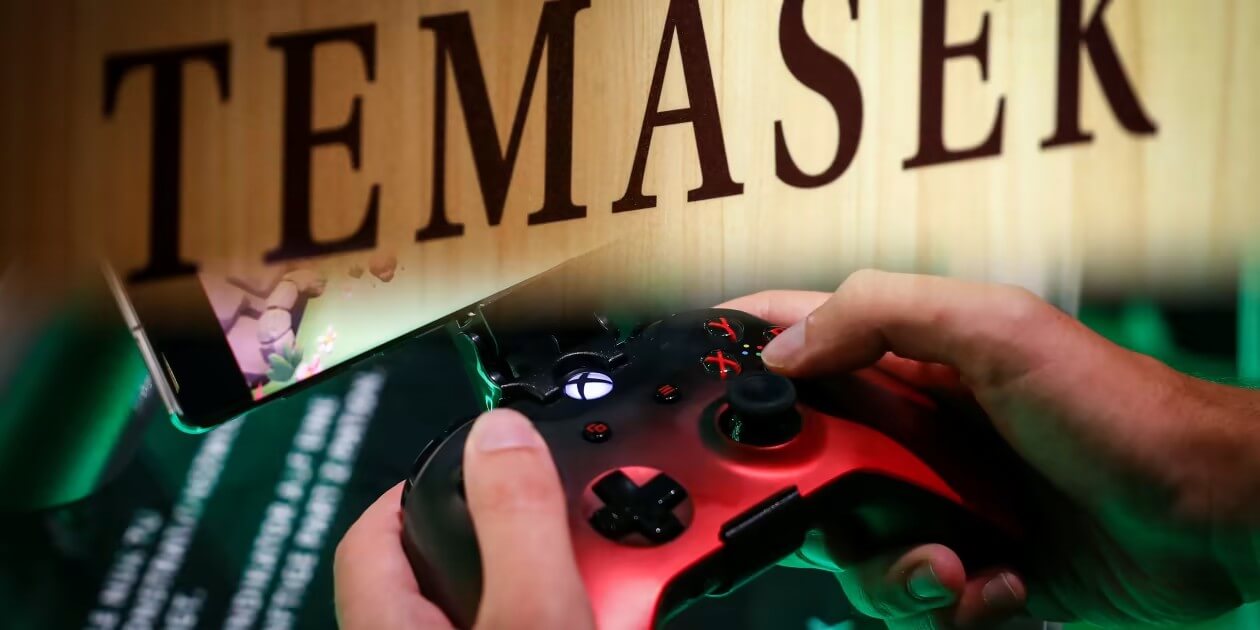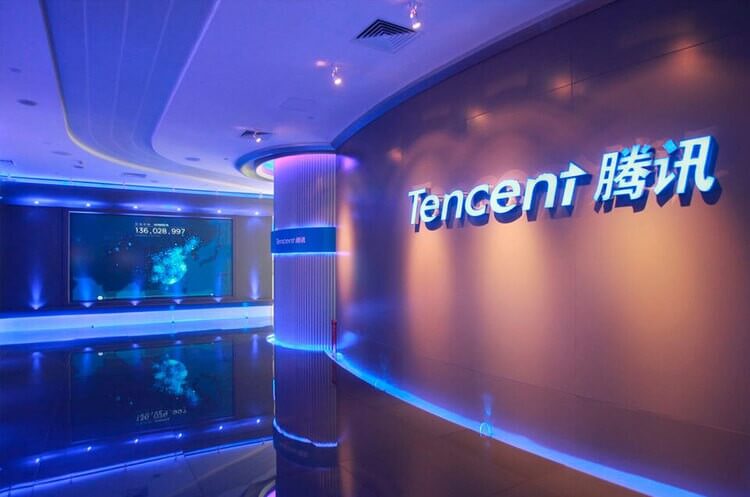Redfinger | Looking Back 2022: Redefine Gaming Industry, Embrace New Recognition

In 2022, the global gaming industry showed a relatively sluggish performance under the influence of multiple objective factors. However, at the same time, the sector also ushered in a new change: governments across the world either issued policies or invested to support the development of the game industry in various ways. In addition, China shows its attitude towards the industry and comes to the discussion. All these prove that games play an essential part in the development of science and technology.
As a matter of fact, comprehensive competition among governments is undergoing, including culture, economy, science, and technology. Amid the fiercer competition, the game industry in 2022 not only leads to a change at the social level but allows governments to embrace a brand-new international competition.
Support Gained Following Recession in 2022
According to Gamma data, in October 2022, the gaming sector in China gained profits of 19.768 billion RMB, an 18.10% decline compared to the year of 2021. In fact, the weakness is the epitome of the global game industry. Affected by the instability of the global financial environment, and the recovery of the stay-at-home economy influenced by COVID-19, the revenue of major players covering the U.S., Japan, and South Korea shrank significantly as well.
In the first half of 2022, sales volume in the sector in the United States fell by 9.6%, while sales volume in Japan fell by a whopping 18%, as per the data from Sensor Tower. In November 2022, Newzoo noted that the global game industry was about to shrink to 184.4 billion U.S. dollars in 2022, a decline of 4.4%.

All these data indicate that the industry fails to enjoy a sound performance in 2022, game developers show less confidence about the development, and the development trend of the sector needs to be further clarified. Amid the backdrop, governments take actions to give impetus to the global gaming industry, including Russia, EU, Saudi Arabia, Singapore, China, etc. As such, competition has begun at the international level, which also drives the development of the sluggish market.
A New Battlefield for Governments to Compete
The sudden Russia-Ukraine conflict allows Russia to suffer an industrial collapse and brain drain in the gaming sector sanctioned by Western countries, shaking the foundation of Russia's digital economy. In this context, a document recently discussed shows that the Russian government is thinking over a systematic support program for the gaming industry. Russia plans to invest up to $50 billion in the gaming industry by 2030.
It is no coincidence that the European Parliament in November formally adopted a resolution on video games with 560 votes in favor, 36 against, and 16 abstentions. It means that the European Parliament officially recognizes the economic, cultural, and educational value behind video games, and will accordingly urge the European Commission and the Council of the European Union to develop a long-term video games strategy to support the development. It should be noted that in addition to Russia and the EU, emerging economies see the unique value of the game industry and regard it as the direction to invest in the future.

For example, Singapore, which is famous for its financial industry and re-export trade, has been investing in game enterprises through sovereign wealth funds such as Temasek and GIC. Besides, Saudi Arabia announced on January 24 that it would invest in the acquisition of ESL and FACEIT with $1.5 billion. And then Saudi Arabia's sovereign wealth fund PIF has spent billions of dollars to invest in a host of gaming companies such as Capcom, Nintendo, NCsoft, Nexon, Embracer, etc., while MiSK Foundation has also acquired a 96% share in Japan's SNK.
Chinese Gaming Industry Sees New Opportunities
While governments are setting off a new round of competition in the global market for the gaming industry, China shows positive attitudes toward the sector's value. According to a recent report, the problem of teenagers' addiction to playing games in China has been further solved. Since then, the positive value of the game industry is being recognized by the public.
In addition, the contribution rate of game technology to the technological progress of the chip industry is 14.9% while the contribution rate to 5G high-speed network industry is 46.3%. What's more, the contribution rate to the XR industry is as high as 71.6%.
In October, Global Times published an article arguing that games going overseas can help enhance the international discourse in multiple dimensions. The article suggested that scientific study and judgment of the domestic and international situation can enhance confidence in development, and promote the high-quality development of the emerging mainstream culture and the emerging sports industry.
And in November, an official newsletter pointed out that the opportunity to deeply analysis on the value of the video game industry should be grasped. Electronic games have long been free from the single attribute of entertainment products and have shifted to become an industry of great significance to a country's industrial layout and scientific and technological innovation.

Tencent currently initiates and participates in game technology exploration projects in many fields such as aerospace and aviation, robotics learning, digital public welfare, etc. Meanwhile, NetEase also applies game technology to the development of automated excavation equipment.
With the joint efforts of all parties ranging from organizations, and media to game enterprises, the attitude toward the gaming industry is undoubtedly undergoing a major transformation. Compared with the excessive emphasis on entertainment attributes in the past, the multiple social values for economic development, technological progress, cultural inheritance and export, and national self-confidence are now being recognized.
As the sector is gaining unprecedented attention from governments, China's gaming industry will be directly involved in this competition and usher in new development opportunities as well. It can be foreseeable that after reviewing and thinking over the sector in 2022, more and more individuals and governments will recognize the importance of developing the gaming industry.

Comments
Post a Comment